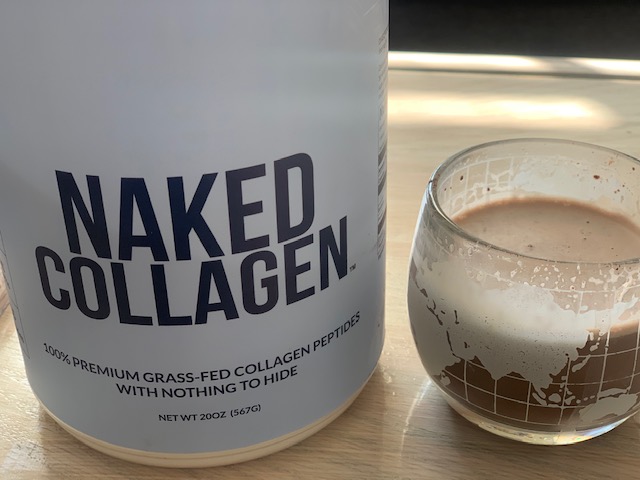Link Between Collagen and Brain
In the realm of wellness and health, collagen has been a buzzword for quite some time, predominantly recognized for its benefits to skin, hair, and joint health. However, recent scientific discoveries have unveiled another remarkable dimension of collagen’s influence – its profound impact on brain health. Beyond its cosmetic and structural roles, collagen plays a pivotal role in bolstering cognitive function and memory, paving the way for a sharper mind and enhanced mental acuity.
Understanding Collagen: Nature’s Structural Protein
Before delving into the intricate relationship between collagen and brain health, it’s essential to grasp the fundamentals of this vital protein. Collagen stands as the most abundant protein in the human body, serving as the primary structural component of various tissues, including skin, bones, tendons, and ligaments. Its robust molecular structure provides strength, support, and elasticity to these tissues, ensuring their integrity and resilience. Visit their page where you will find lots of great information and practical advice about taking the top marine collagen.
Collagen Types and Functions
Collagen exists in multiple types, each tailored to fulfill specific physiological functions. Type I collagen, for instance, predominates in the skin, bones, and tendons, conferring strength and firmness. On the other hand, Type II collagen is abundant in cartilage, facilitating joint flexibility and mobility. While these roles are well-documented, emerging research sheds light on another critical function – its impact on brain health.
Unveiling the Collagen-Brain Connection
The brain, though comprising primarily neurons and glial cells, also contains a rich network of blood vessels, known as the cerebrovascular system. This intricate web of vessels is crucial for delivering oxygen, nutrients, and essential molecules to brain cells while removing metabolic waste. Remarkably, collagen plays a vital role in maintaining the structural integrity and function of these cerebral blood vessels, thereby influencing brain health and cognitive processes.
Collagen and Cerebral Blood Flow
One of the key mechanisms through which collagen influences brain health is by regulating cerebral blood flow. Collagen fibers provide structural support to the walls of blood vessels, preventing their collapse and ensuring proper blood circulation throughout the brain. Research suggests that compromised collagen integrity in cerebral blood vessels may lead to vascular dysfunction, reducing blood flow to vital brain regions and impairing cognitive function.
Neuroprotective Effects of Collagen
Moreover, collagen exhibits neuroprotective properties, shielding brain cells from damage and degeneration. Its anti-inflammatory and antioxidant characteristics help mitigate neuroinflammation and oxidative stress, two underlying factors implicated in various neurodegenerative diseases, such as Alzheimer’s and Parkinson’s. By preserving neuronal health and function, collagen contributes to maintaining cognitive vitality and memory retention.

Enhancing Cognitive Function with Collagen
Given its pivotal role in supporting brain health, incorporating collagen into one’s dietary regimen can yield significant cognitive benefits. While collagen peptides are commonly available in tablet form, several natural sources can enrich your diet with this essential protein.
Nutrient-Rich Foods
Including collagen-rich foods in your meals can provide a natural boost to brain health. Sources such as bone broth, chicken skin, fish, and egg whites are abundant in collagen-building nutrients, including glycine, proline, and hydroxyproline. Additionally, incorporating fruits and vegetables rich in vitamin C, zinc, and copper can enhance collagen synthesis and promote optimal brain function.
Lifestyle Factors
Beyond dietary considerations, certain lifestyle factors can also support collagen production and brain health. Regular exercise, adequate sleep, stress management, and avoiding smoking and excessive alcohol consumption can help maintain collagen integrity and optimize cerebral blood flow, thereby nurturing cognitive function and memory retention.
Conclusion: Nourishing the Brain with Collagen
In conclusion, the profound link between collagen and brain health unveils a new frontier in holistic wellness. Beyond its well-established benefits for skin and joint health, collagen emerges as a potent ally in enhancing cognitive function and memory retention. By fortifying cerebral blood vessels, exerting neuroprotective effects, and promoting optimal brain circulation, collagen empowers individuals to preserve mental acuity and cognitive vitality throughout life.
Incorporating collagen-rich foods and adopting brain-healthy lifestyle practices can serve as proactive steps towards nurturing brain health and optimizing cognitive function. With the growing body of scientific evidence supporting its efficacy, collagen stands as a natural and promising avenue for unlocking the full potential of the human mind.




